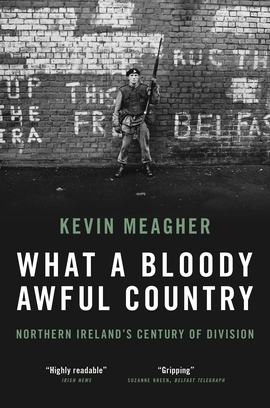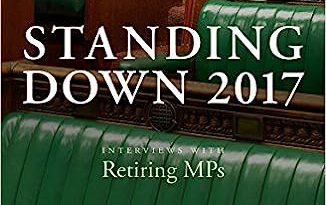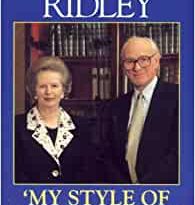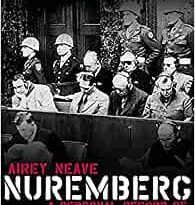BOOK REVIEW : What a Bloody Awful Country by Kevin Meagher
Reg Maudling returned from Northern Ireland in 1971 somewhat overwhelmed by what he had seen, a part of United Kingdom which had been given unprecedented levels of devolution over the decades simply falling apart as terror spread across its streets. The Home Secretary got back to London, asked for a Scotch and said to an aide “what a bloody awful country”, from which this book by Kevin Meagher takes its title.
The book starts with a detailed look at how Catholic and Protestant divisions were ramped up by politicians and how that formed the first Troubles between 1920 and 1922. Although noting with reference to the situation in 1970 that “a problem that had laid dormant for two generations had exploded” the author perhaps skates over this period and not really examining with enough detail just why matters didn’t come to a head earlier. Catholics were even until the 1990s twice as likely to be unemployed and gerrymandering had ensured that Protestants were more likely to hold elected positions of power or had comfortable jobs within the institutions of Ulster.
The author points towards the passionate maiden speech made in the House of Commons by Bernadette Devlin in 1969, calling out the excesses of the unionist Government and for Westminster to remove the power of Stormont and to run the Province from London. The next two decades, and particularly the next few years, saw a move away from the Unionist Government and their mistakes of not looking after the Catholic population and instead towards rule from London which the author notes marked a new level of mismanagement of governance.
It would be difficult not to treat Bloody Sunday as one of the defining moments in the Troubles in political, economic, social and military terms, and the author notes “Bloody Sunday was a human rights disgrace, a reckless and unjustified slaughter. But, militarily, it was a disaster; revealing the limits of the British Army’s ability to police a civilian theatre”. He adds that “it was caused by a poisonous cocktail of ill-disciplined soldiers, inept commanders and hand-wringing politicians”. Maudling was out of his depth, showed nearly no remorse and was physically attacked by Devlin, who considered his speech to be not just factually inaccurate but also coldly delivered, in the chamber of the House of Commons and she said that she regretted pulling his hair, instead angrily stating to journalists “I’m just sorry I didn’t get him by the throat”. Selwyn Lloyd, the Speaker of the House of Commons, inexplicably failed to call Devlin during the debate despite her being the only MP present at the scene, a mistake showing the levels of disconnect between Westminster politicians and Northern Ireland.
Political decisions can have implications long into the future, which is noted in the book when mentioning that the Irish Question of the late nineteenth century was never ultimately dealt with. History could have been very different if the 1914 Government of Ireland Act hadn’t of been pushed to one side due to the First World War, as that gave devolution to the entire country without partition. If that had been delivered, there is the possibility that Ireland would have been governed very differently and perhaps ultimately become entirely independent from Great Britain. Instead, there was the restriction of the 1949 Ireland Act which enshrined into law the right of residents of Northern Ireland to determine their future, which meant that Willie Whitelaw’s investigation into holding a referendum of the whole country fell away. Meagher addresses this, writing that although partition might not have been inevitable, there would have likely been a full blown civil war without it. He does though comment that “what 1914 certainly represented was the last best opportunity for Britain to avoid the century that followed”.
The author over a number of chapters explains the chronological history of how violence and hatred continued in Northern Ireland, despite growing demands from the public for it to end. After progress made by the Governments of Thatcher, Major and Blair in opening and expanding dialogue between the different sides, albeit with many setbacks along the way, power sharing was delivered. Although that has often fallen apart, the author notes that “it is clear that this amounts to the most successful period in Northern Ireland’s history” and that despite the collapse of the Assembly, it is still “the best that Northern Ireland has ever been governed”.
The book is thoughtfully written and well researched, with the author being even-handed in his text between the Republican and Unionist sides. Perhaps more sympathetic to Labour Prime Ministers than Conservative Prime Ministers, but that isn’t surprisingly since the author is from the left and was an adviser to Shaun Woodward, the last Labour Secretary of State for Northern Ireland. An excellent book which is a comprehensive introduction to the state of play in Northern Ireland, and with ideas on how to tackle the en passe that currently exists.



